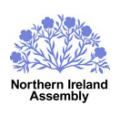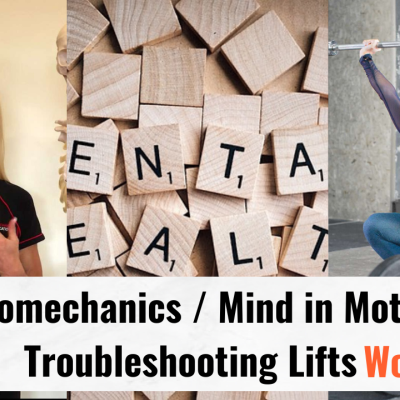Knowledge Exchange Seminar - 21 June 2017 - Understanding and Promoting Community Well-being

NI Assembly RaISe
Knowledge Exchange Seminar - 21 June 2017 - Understanding and Promoting Community Well-being

Ms Louise O’Boyle (Ulster) - Promoting community well-being through partnerships and co-production
This presentation will discuss the findings from evidence-based research into the effectiveness of a partnership between Louise O’Boyle (Ulster University) and PIPS Charity North Belfast, over a series of collaborations between 2012-2016. The constituency of North Belfast is an area of multiple disadvantages and has the highest suicide rate in Northern Ireland (Constituency Profile Belfast North, December 2012). These collaborations included a number of arts-based projects that involved post-primary children, PIPS staff and PIPS Family Support Group. The outcomes of these projects were further utilised to promote emotional wellbeing within the local communities of North Belfast. This presentation will focus on the development of the partnership and discuss what were the key considerations, synergies and modes of working utilised to make it effective; how these findings can inform future partnerships within communities. As proposed in the Assembly’s consultation document, ‘Strategy for Culture and Arts 2016-2026’ the driving vision is “To promote, develop and support the crucial role of arts and culture in creating a cohesive community and delivering social change to our society on the basis of equality for everyone” (2015: 11). This presentation will conclude that fundamental to the development of any partnership is recognition that knowledge can be created outside of the academy and other formal bodies. Who the experts are and where they are located is changing and this approach to partnership can lead to coproduced forms of knowledge. Communities can inspire and inform public bodies and in turn be supported by them.
Prof Siobhan O’Neill (Ulster) - Targeting zero suicide in Northern Ireland: understanding the risk factors in specific sub groups
Northern Ireland continues to have the highest suicide rate in the UK, and some of the highest rates in the western world. The psychological approach to suicide is that death is the result of a behaviour; of which mental illness is only one (unreliable) predictor. Since suicide is a behaviour, and therefore preventable, the only acceptable target is zero. Therefore, by understanding and addressing all the antecedents of the behaviour we can work towards eliminating it. Bringing these principles together, this presentation will link the evidence regarding the antecedents of suicidal behaviour in Northern Ireland with psychological theories of suicide and, provide “Zero Suicide” guidelines for policymakers and practitioners. It is widely recognised that those who die by suicide are not a homogenous group. Evidence from the Ulster University student well-being study, the Northern Ireland study of Health and Stress, and the Northern Ireland suicide database will be presented to illustrate the specific sub populations who are at higher risk, based on age, sex, demographic profile, trauma exposure, mental health and life events. Each of these sub populations have specific needs and suicide prevention strategies should take consideration of these.
Sharon Mallon (OU) - The role of paramilitary punishment attacks and intimidation in death by suicide in post agreement Northern Ireland.
The signing of the Good Friday agreement effectively brought an end to the widespread violence associated with the ‘Troubles’. However, communities within Northern Ireland continue to be blighted by an insidious form of violence in the form of punishment beatings and intimidation. Anecdotal evidence published in news media have linked cases of such intimidation and violence to individual cases of suicide. However, to date, there has been a lack of empirical research examining this relationship. The aim of this seminar is to address this gap in our knowledge by examining these forms of violence among a cohort of individuals who died by suicide in Northern Ireland. Using data collected from Coroners and GP files and during interviews with family members, we use a modified version of the psychological autopsy method to explore how intimidation and/or beatings, at or around the time of the death, may have contributed to the suicides of individuals who died over a two-year period. We explore some of the specific features of these deaths and examine associated help seeking with primary care and other mental health professionals. We conclude by exploring ways in which this challenging issue might be tackled at a policy level.
Prof Cahal McLaughlin (QUB) – The role of oral history in societies emerging from conflict
Three official reports in Northern Ireland have each recommended storytelling as one of the methods to address the legacy of the past – Bloomfield (1998), Eames-Bradley (2007) and Hass (2014) reports. The proposal of an Oral History Archive in the Stormont House Agreement raises the possibility of similar benefits. The Executive is expected to renew negotiations over such legacy issues. In the meantime, community-based initiatives have filled the vacuum by organizing their own storytelling projects. Healing Through Remembering has produced an audit of such projects and the PEACE 3 funded ‘Accounts of the Conflict’ at Ulster University offers a selection of these on a digital platform. The Prisons Memory Archive, based at QUB, is another such initiative and I propose to present its research findings. Using a methodology based on co-ownership, inclusivity and life-storytelling, the PMA has recorded 175 interviews back inside the empty prisons of Armagh Gaol in 2006 and the Maze and Long Kesh Prison in 2007; participants include prison staff, prisoners, chaplains, teachers, visitors and solicitors. These filmed recordings are used in community and educational discussions throughout NI and internationally, with evidence to date showing that if methodologies include co-ownership and inclusivity there are opportunities to positively address our conflicted past in a contested present.
Date and Time
Location
Parliament Buildings
Stormont
Belfast
BT4 3XX
United Kingdom



